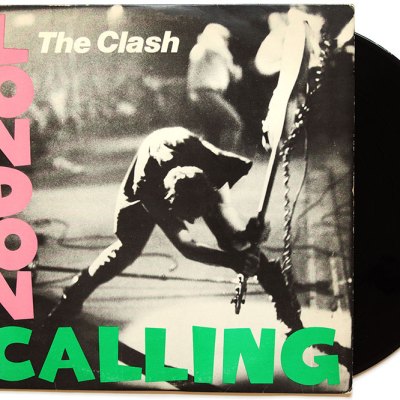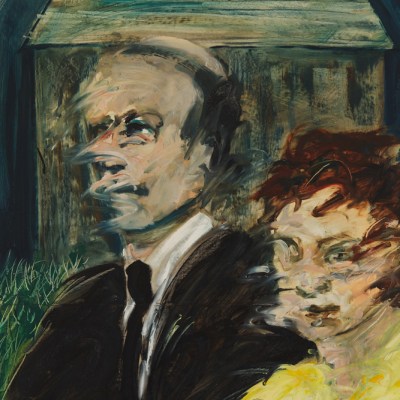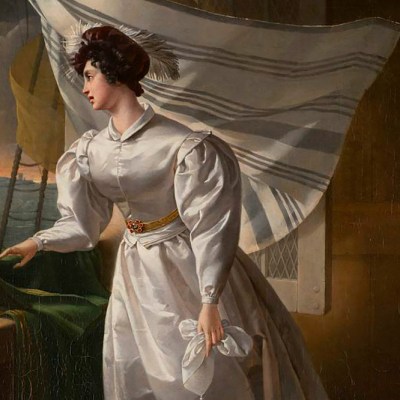Introducing Rakewell, Apollo’s wandering eye on the art world. Look out for regular posts taking a rakish perspective on art and museum stories.
 During the final months of working on The Raft of The Medusa, Théodore Géricault shaved his head and all but locked himself in his studio, working with monastic discipline and rigour. Which lends a rather delicious irony to the fact that this painting was chosen for the album cover of Rum, Sodomy and the Lash (1985), the Pogues’ second album which surely ranks among the finest paeans to and products of unbridled drunken excess ever made. In the week since Shane MacGowan died at the ripe old age of 65, Rakewell has been returning to this album and reliving memories of belting out ‘Sally MacLennane’ – ‘I’m sad to say, I must be on me way / So buy me beer and whiskey cause I’m going far away’ – the night before leaving home for the first time.
During the final months of working on The Raft of The Medusa, Théodore Géricault shaved his head and all but locked himself in his studio, working with monastic discipline and rigour. Which lends a rather delicious irony to the fact that this painting was chosen for the album cover of Rum, Sodomy and the Lash (1985), the Pogues’ second album which surely ranks among the finest paeans to and products of unbridled drunken excess ever made. In the week since Shane MacGowan died at the ripe old age of 65, Rakewell has been returning to this album and reliving memories of belting out ‘Sally MacLennane’ – ‘I’m sad to say, I must be on me way / So buy me beer and whiskey cause I’m going far away’ – the night before leaving home for the first time.
Of course, Géricault’s extravagant vision is in fact a wonderful pairing with the Pogues. The way the painting holds hope and despair, compassion and depravity in an improbable but perfect balance – as the last survivors of the shipwrecked Medusa spy the boat that could save them sail obliviously on – is MacGowan through and through. The cannibalism to which the Medusa’s crew notoriously resorted – what it said of the precarity of human nature – was a source of morbid fascination for Géricault. ‘People are just this much away from murdering each other,’ MacGowan once lectured a brawling crowd in Carlow. For both artists, there was beauty in being cursed – ‘one more drop of poison and you’ll dream of foreign lands’ as MacGowan has it in ‘The Sick Bed of Cúchulainn’, the first song on Rum, Sodomy and the Lash. Géricault went on to create a celebrated series of portraits of the insane.
The Raft of the Medusa (1818–19), Théodore Géricault. Musée du Louvre, Paris. Photo: Wikimedia commons/public domain

An inspired choice for the album cover, then – one for which the Pogues’ manager Frank Murray is credited on the record. (MacGowan later suggested it was the idea of Marcia Farquhar, the wife of founding member Jem Finer who would revisit the subject in the song ‘The Wake of the Medusa’ in 1990.) With the Pogues’ faces interspersed among those of the doomed by artist Peter Mennim, the cover is not often mentioned among the great combinations of artist with album sleeve – Warhol and the Velvet Underground, say, or Peter Blake and the Beatles. (Nor, for that matter, is the other prominent instance of repurposed French Romanticism, Delacroix’s Liberty Leading the People adorning Coldplay’s Viva La Vida. Rakewell leaves the reader to speculate as to why that might be the case.) But its enduring power is summed up by MacGowan’s fellow buccaneer Tom Waits, who surely had the new release in front of him when, in 1985, he described the Pogues as ‘Dead End Kids in a leaky boat’ – words which apply just as well to the Medusa’s unfortunate crew.
Got a story for Rakewell? Get in touch at rakewell@apollomag.com or via @Rakewelltweets.




